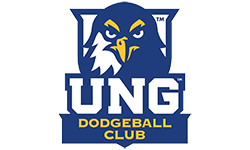From Aleks Bomis [MSU Alum]
A team from Michigan has claimed the title of NCDA National Champion eight years in a row. That is an impressive and undeniable fact. Unfortunately, my treasured Spartans have no bearing on that; I, at 29 years of age, was on the squad that achieved Michigan State’s sole Michigan Dodgeball Cup victory, a game played against a community college in a church recreation room. I can still hear the dodgeballs carom off the radiators to the dismay of the building’s staff. Delta College was kind enough to have purchased the MDC Trophy, and in (I think) 2023 an additional base will be attached to the Trophy. The MDC is now regarded as a preview of the NCDA Final Four, much to the dismay of the rest of the league.
I am not so arrogant as to call Michigan the heartland of college dodgeball; teams existed in Illinois and Ohio long before anyone of the Great Lakes State showed up to play, and their names are etched in the NCDA Trophy, as is mine. [Ed: The Nationals Trophy -zm] Still, Michigan’s historic performance is remarkable. Having said that, it’s time someone beat these guys and took home the hardware. If I were captaining a dodgeball team 10 years younger, here’s how I would go about busting up the established order:
1. Don’t buy into the hype.
Michigan teams are beatable. Don’t misunderstand; all of them are fundamentally sound, with a stable of competent throwers and catchers. Barring the team bus breaking down or a collective hangover from a massive party (side note: don’t let your team get hungover from a massive party), a full-on collapse is highly unlikely. That said, no team will surpass the dominance of Grand Valley State University of 2007-2010. Those teams were men among boys, and Michigan has traded on that reputation for far too long. All of those people are gone.
2. Recognize your relative safety.
A remarkable number of throws end up short, whether it is to attempt to reset a shot clock without giving up a possible catch or because teams target ankles and shins. In either circumstance, a remarkable number of thrown dodgeballs end up short of any possible contact with their target. When players realize they will have to block maybe 1 in 3 throws, suddenly they can afford to approach and threaten regularly.
3. Run, run, RUN.
A common complaint is that Michigan teams play a slower game than other schools are used to. The straightforward response is that teams across the board are not used to exerting themselves, and this would include the Michigan teams; Michigan teams are only as slow as you let them play. After attacking, a player is typically thinking of retreating and nothing else. A counterattack with players running at 75% capacity will often result in opponents fleeing at 100% capacity. Over the course of the game, the opposition will tire out as the game progresses. Tired players make mistakes, and mistakes lead to opportunities. This is a long-term focus point, but a team that can run for 50:00 is a team that can win. Besides, a faster paced game tends to be more fun for everybody.
4. Mix up your shot selection.
Fundamentals dictate that a throw aimed at someone’s feet or knees is a safe shot; if the throw misses, the low clearance generally means that the throw will not result in a catch. Most players in the league know this by now, and they know that opponents will play in the same manner. A powerful throw at head or shoulder level 15-20% of the time will keep players off guard and occasionally result in a very satisfying elimination.
5. Go for the ball.
Catching is by far the most valuable skill in the game. Control of the fight or flight response, coupled with solid dexterity, can nullify most of the issues Michigan teams pose. No player in the league seems particularly dominant this season. This mindset, coupled with the knowledge that many throws end up short, can result in the underdogs (such as Ohio State in 2005 and 2006) winning it all.
The key to all of this, of course, is to package these messages in a way that is fun for players week in and week out. Given the opportunity to do it all again, I would likely play far more reckless in practice, tire myself out within half an hour, and get pelted on a regular basis. By the time competitive games rolled around, though, I would be ready to confront and withstand anything the opposition sent my way. Mid February may be too late to adjust the course of your particular team, but the groundwork can be laid for a big surprise in 2016.
– Aleks Bomis [MSU Alumnus and initial Staff of the NCDA]


























Attention all non-Michigan teams: Don’t listen to what this wise man has to say…
*picks up phone off ground* Good luck.
Not that anyone is counting, but I was a freshman on the 2010 GV team so they are not all gone quite yet…